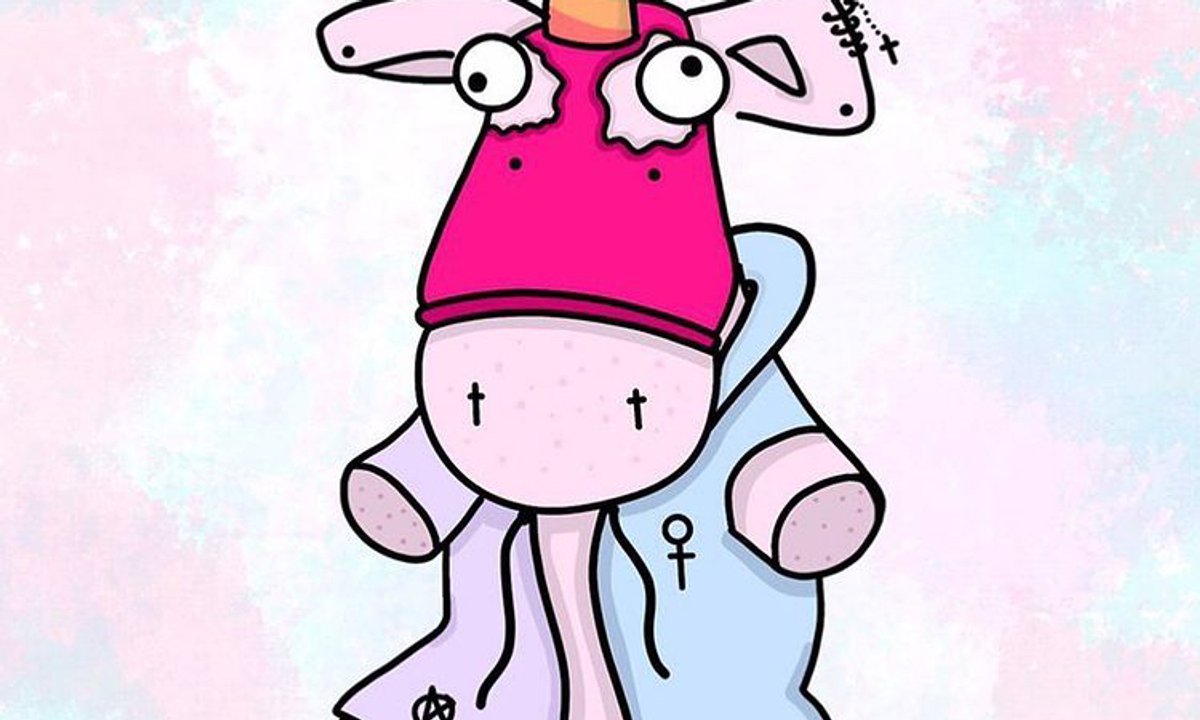
For all its promise of breaking the mould, the global NFT market is just as pale, male and stale as the traditional art market. According to recent figures, works created by female-identifying artists account for just 5-15% of the multi-billion-dollar NFT industry’s turnover.
But a raft of NFT projects and DAOs (decentralised autonomous organisations) are springing up to tackle the problem, many of them being formed to coincide with Women’s History Month and International Women’s Day today.
They include Unicorn DAO, a collecting fund launched this week by a group of more than 30 artists, activists, crypto investors and collectors including Pussy Riot member Nadya Tolokonnikova, Mike Winkleman (aka Beeple) and World of Women. The DAO will specifically invest in projects by female and LGBTQ+ artists in a bid to redistribute wealth.
“Capital is still vastly concentrated in the hands of men. Men still own the world, and it’s not cute,” Tolokonnikova says in a post on Instagram.
“For the first time in my life, I’m able to use economic tools as my paints and brushes. Just because of my gender, and the way I look—I DO enjoy wearing short skirts—there could still be a moment where you’re dismissed immediately, alienated and objectified. My answer: building infrastructure for a feminist revolution on the blockchain.”
Tolokonnikova goes on to espouse the virtues of DAOs— decentralised autonomous organisations which are collectively owned and managed by its members. She believes they can revolutionise and radically change the NFT landscape. “DAOs have proven to be one the best tools for organising in the digital space,” Tolokonnikova says. “It’s the first time when anarchy is not just a promise, it’s actually something achievable. Anarchy means, for me, decentralised, self-governing systems.”
Likening Unicorn DAO to the formation of the feminist Russian performance collective Pussy Riot ten years ago, Tolokonnikova says the aim of the new venture is to “bring more tools, capital, and power to women-identifying and LGBTQ+ people”. She adds: “We still have the same ethos as Pussy Riot had at its formation over 10 years ago: bringing more equality, justice, and joy to communities that’s been historically underrepresented.”
For the month of March, SuperRare is partnering with World of Women—an NFT collective whose vision is “to build an inclusive web3 through its collection and community”. Each week, the group will introduce emerging artists from various geographical and cultural backgrounds. The first to be showcased are Diela Maharanie, an illustrator and visual artist based in Indonesia; Jess Bianchi, who describes herself as a third-world artist; and Laurel Charleston.
Meanwhile, to coincide with International Women’s Day, the digital art platform Agora is launching its own NFT marketplace, offering its users the chance to buy digital pieces from #WeTheWomen, a collection by largely female artists and photographers including Christina Tan, Nathalie Mourot and Elisabetta Illy.
According to a new report by Limna, an AI-powered app and artist database, male artists continue to dominate the most lucrative media such as painting and sculpture. Looking at female participation in exhibitions between 1900 and 2022, just 21% of painters are women and 19% of sculptors.
Conversely, female-identifying artists are more prevalent in media such as video and performance, accounting for almost 40% and 41% of these sectors, respectively.
Marek Claassen, the co-founder of Limna and Artfacts, says: “The correlation between choice of medium and gender is interesting, with women having greater presence in video and performance, possibly due to their prevalence and novelty—and therefore accessibility—at the point when women achieved greater social independence.”
The report also identifies that 29% of those producing digital art are female, with NFTs considered a sub-section of this genre. “Given that NFTs represent the intersection of art, technology and gaming, three significantly male-dominated contexts, it is no surprise that women’s participation is still so low,” Claassen says.
“Men are getting the benefits at the demand end too, with NFT artists purchased by mostly male buyers. This tendency shows how men tend to occupy the most profitable positions throughout the chain of production and consumption.”
Claassen concludes: “Although women’s participation in exhibitions has risen from 7% in 1900 to 45% in 2022, the art world remains full of gender inequities. It’s clear that women’s representation is still undervalued and people in the art world may want to think that we are achieving gender equality faster than we are in reality.”
from WordPress https://ift.tt/wqd7orX
via IFTTT

No comments:
Post a Comment